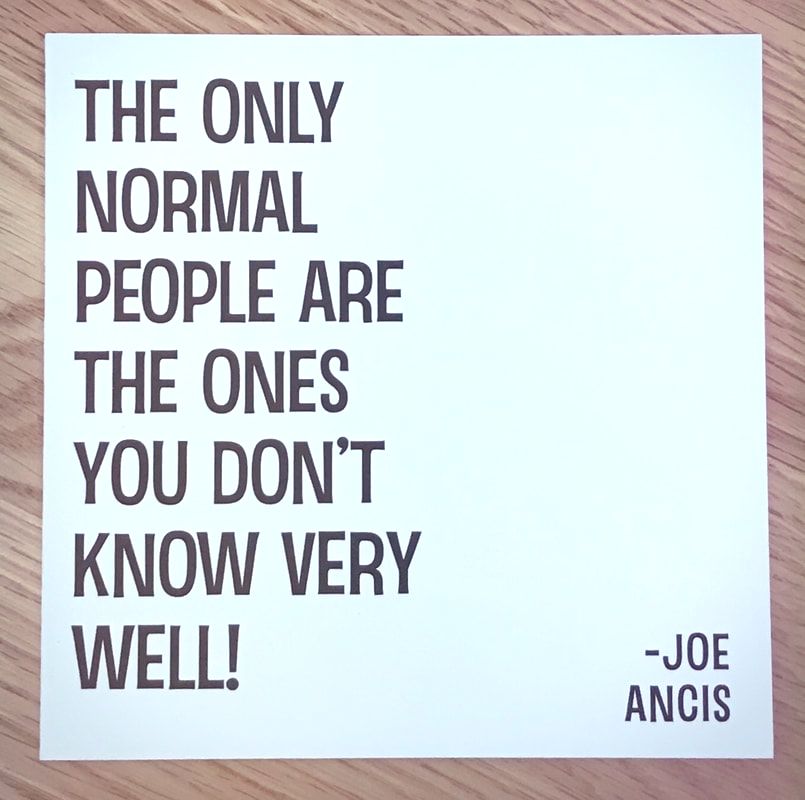My Approach to Therapy
Overall, I see my role as therapist is to be a guide towards the vitality and wisdom that resides within you. To that end, I employ a variety of approaches tailored to fit individual style and needs. These include active listening, mindfulness practices, somatic experiencing, family of origin work, and humor.
In session, the first thing we do is slow down, let go of distractions, and create spacious quiet to develop mindful awareness. Turning attention inward can be like learning a new language. The language of the interior is visceral and much slower than the familiar grooves of habitual thought. I will help you find your way in and learn how to observe your experience without judgement.
As we learn to pay attention to ourselves with compassion, we feel less alone and more empowered. To be attuned to, empathized with, and deeply understood is a balm to the nervous system. It is not unusual to feel more grounded and relaxed at the end of a session with more clarity and drive to take on life’s challenges and more ability to notice and savor life’s joys.
In session, the first thing we do is slow down, let go of distractions, and create spacious quiet to develop mindful awareness. Turning attention inward can be like learning a new language. The language of the interior is visceral and much slower than the familiar grooves of habitual thought. I will help you find your way in and learn how to observe your experience without judgement.
As we learn to pay attention to ourselves with compassion, we feel less alone and more empowered. To be attuned to, empathized with, and deeply understood is a balm to the nervous system. It is not unusual to feel more grounded and relaxed at the end of a session with more clarity and drive to take on life’s challenges and more ability to notice and savor life’s joys.
What Brings People to Therapy
People take the courageous step toward psychotherapy for a variety of reasons. Sometimes it is something specific: a recent loss, the death of someone important, a break-up, or something else precipitating a life transition. At other times, it is something more general: feeling unhappy, stuck, or chronically overwhelmed.
I have training and experience with a variety of life issues including:
I have training and experience with a variety of life issues including:
|
“And the day came when the risk to remain tight in a bud was more painful than the risk it took to blossom.” |
What is Mental Health Anyway?
|
I was once at a large professional conference where a prominent neuroscientist asked the crowd, a group of helping professionals, how many of us learned what mental health was in graduate school. Barely anyone raised their hand.
Many of us don’t know what mental health is. Unlike physical health, we think we should magically have mental health. We don’t think of mental health as a set of skills. We often carry a vague notion that mental health is being “normal.” Who gets to decide what normal is, and to what end? |
I have developed a list over many years, which is by no means exhaustive, defining mental health. It is a set of capacities, many of them intrinsic that can be uncovered, or abilities that can be learned. Mental health is the capacity:
to be open, flexible, non reactive and self aware
to be compassionate toward self and others
to recognize and challenge the status quo
to develop an authentic internal sense of authority, autonomy and agency
to legitimize contrasting feelings or contradictory impulses
to be open and curious versus closed and judgmental
to admit to wrong doing or wrong assumptions and change course
to be resilient and trusting amidst intense emotion
to value oneself to meet one’s needs inside and outside of relationship
to recognize and savor joy and delight, to play, and
to maintain one’s balance and integrity no matter who or what comes at us in life.
to be open, flexible, non reactive and self aware
to be compassionate toward self and others
to recognize and challenge the status quo
to develop an authentic internal sense of authority, autonomy and agency
to legitimize contrasting feelings or contradictory impulses
to be open and curious versus closed and judgmental
to admit to wrong doing or wrong assumptions and change course
to be resilient and trusting amidst intense emotion
to value oneself to meet one’s needs inside and outside of relationship
to recognize and savor joy and delight, to play, and
to maintain one’s balance and integrity no matter who or what comes at us in life.


